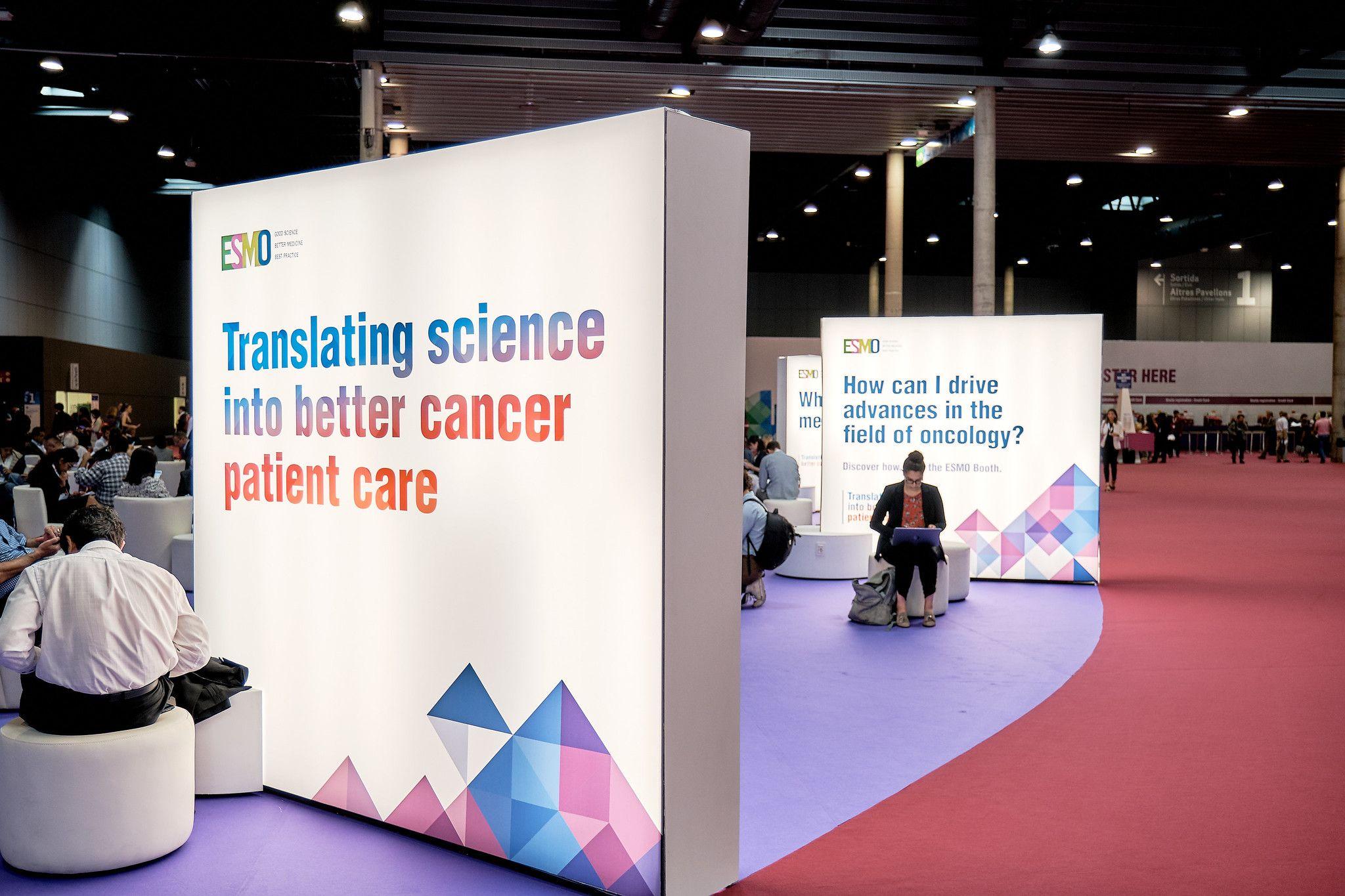ESMO 2019: Detecting ALK positive lung cancer in the blood

Presented at ESMO Congress 2019, the BFAST trial shows that next generation sequencing might be used to identify ALK rearrangements in the blood of patients with non-small cell lung cancer, potentially sparing patients a lung biopsy.1
A growing number of patients with advanced lung cancer could soon be offered a blood test to guide treatment decisions instead of having to perform an invasive biopsy on them: A new study presented at ESMO 2019 shows that next generation sequencing (NGS) can be used to detect ALK gene rearrangements in circulating tumor DNA of patients with non-small cell lung cancer (NSCLC), potentially rendering lung biopsies unneccessary.1
“One of the biggest recent changes in treatment of NSCLC has been our ability to identify targetable genetic mutations that drive progression of the disease, but it is a major challenge to get a suitable tumor sample for analysis,” explained study author Dr Shirish Gadgeel, Rogel Cancer Center, University of Michigan, USA.
Now the researchers could show that liquid biopsy could be used to detect ALK rearrangements in NSCLC patients. Patients in whom ALK rearrangement was diagnosed by liquid biopsy responded at least as well to targeted therapy as patients that had been diagnosed via a lung biopsy.
One of 20 patients had ALK positive disease in the blood test
In the multicenter Phase II/III BFAST trial, 2,219 patients with stage IIIB/IV untreated NSCLC had blood-based NGS of actionable genetic alterations and results were obtained in 2,188 patients.
Overall, 119 patients (5.4%) had ALK+ disease and 87 of these were enrolled to receive alectinib. After a median follow-up of 12.6 months, an objective response rate of 87.4% (95% CI 78.5–93.5) was reported by investigators, median progression-free survival was not reached.
Sparing patients the biopsy
“Liquid biopsy identified a similar proportion of patients with ALK mutations to that typically seen with traditional biopsy and the results with alectinib compared well with those seen in a pivotal study of this treatment,” emphasized Gadgeel.
Commenting on the results of the study, Prof Alberto Bardelli, Department of Oncology, University of Turin, Italy, said, “Rearrangement in the ALK gene described in the BFAST study is typically difficult to detect, so it is an important advance to have shown that it can be detected in the blood and used to guide ALK inhibitor treatment which has then been demonstrated to be effective in patients with this mutation.”
“It is encouraging to see that increasing numbers of patients with lung cancer can benefit from liquid biopsy to identify their disease mutation instead of tissue samples. At present the technology is quite expensive but as it becomes more widely used, the cost is likely to come down so that testing becomes more affordable and available in daily practice,” he added.
Reference
1 Gadgeel S et al. Phase II/III blood first assay screening trial (BFAST) in patients (pts) with treatment-naïve NSCLC: initial results from ALK+ cohort LBA81_PR
ESMO Congress 2019